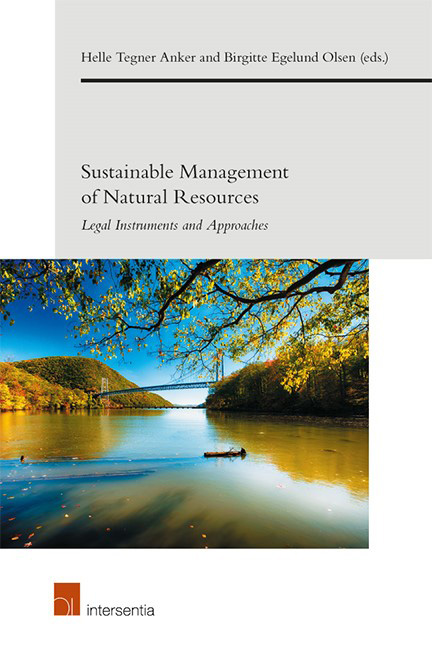Book contents
- Frontmatter
- Contents
- PART I INTRODUCTION
- PART II SUSTAINABILITY IN EU AND INTERNATIONAL LAW
- PART III SUSTAINABLE MANAGEMENT OF WASTE
- PART IV ENVIRONMENTAL AND CLIMATE LITIGATION
- PART V ECOSYSTEM APPROACHES AND ADAPTIVE MANAGEMENT
- Chapter 9 Managing Environmental Utilisation Space in the Dutch Environment and Planning Act
- Chapter 10 Reconciling Adaptive Management Strategies with the EU Nature Directives: the Unfortunate Case of the Dutch Integrated Approach to Nitrogen
- Chapter 11 Balancing Nature Protection and Other Public Interests: the Czech Example
- PART VI SUSTAINABLE RESOURCE MANAGEMENT: SPECIFIC ISSUES 193
Chapter 9 - Managing Environmental Utilisation Space in the Dutch Environment and Planning Act
from PART V - ECOSYSTEM APPROACHES AND ADAPTIVE MANAGEMENT
Published online by Cambridge University Press: 31 January 2019
- Frontmatter
- Contents
- PART I INTRODUCTION
- PART II SUSTAINABILITY IN EU AND INTERNATIONAL LAW
- PART III SUSTAINABLE MANAGEMENT OF WASTE
- PART IV ENVIRONMENTAL AND CLIMATE LITIGATION
- PART V ECOSYSTEM APPROACHES AND ADAPTIVE MANAGEMENT
- Chapter 9 Managing Environmental Utilisation Space in the Dutch Environment and Planning Act
- Chapter 10 Reconciling Adaptive Management Strategies with the EU Nature Directives: the Unfortunate Case of the Dutch Integrated Approach to Nitrogen
- Chapter 11 Balancing Nature Protection and Other Public Interests: the Czech Example
- PART VI SUSTAINABLE RESOURCE MANAGEMENT: SPECIFIC ISSUES 193
Summary
ABSTRACT
This chapter analyses how the environmental utilisation space concept is implemented in the upcoming Dutch Environment and Planning Act and to what extent this concept contributes to the goal of sustainable development. It first studies the origins and application of the environmental utilisation space concept in Dutch environmental law and its relationship with sustainable development and the ecosystem approach. The chapter continues with an analysis of the implementation of this concept by the Dutch legislator in the Crisis and Recovery Act of 2010 and the future Environment and Planning Act, with an emphasis on the role of municipalities in managing environmental utilisation space in environmental plans and the implementation of a programmatic approach. The chapter finishes with a summary of the obstacles and incentives relevant when implementing the environmental utilisation space concept in the future Environment and Planning Act.
INTRODUCTION
The current legal framework in the Netherlands is considered insufficient to provide the government with the instruments needed to actively work towards a sustainable society while allowing for economic development. One of the main reasons is the lack of an integral and coherent approach for regulating the physical environment that people live in. Environmental principles, standards and values are spread across many different legislative acts and provisions focus either on a particular subject or address one particular environmental issue. The Dutch legislator therefore adopted the Environment and Planning Act (EPA) – which is anticipated to come into force in 2021 – in which environmental, spatial planning and nature conservation acts are integrated into one act. The EPA incorporates existing legal instruments, and adds new elements, striving towards a sustainable society. It also aims to provide more effective and efficient tools to implement EU environmental law in the Dutch legal order.
One of the guiding concepts for the EPA is the (environmental) utilisation space concept, which functions as a general notion for the legislator as well as the public administration when designing environmental legislation and policies. Utilisation space is defined in the Explanatory Memorandum of the EPA as the ‘the legal leeway that exists in a specific area to allow for the realisation of (economic) activities’. According to the legislator, it has a slightly broader meaning than the term environmental utilisation space, which refers to the legal leeway that exists only in relation to the existing legal requirements to protect the environment.
- Type
- Chapter
- Information
- Sustainable Management of Natural ResourcesLegal Instruments and Approaches, pp. 139 - 154Publisher: IntersentiaPrint publication year: 2018



